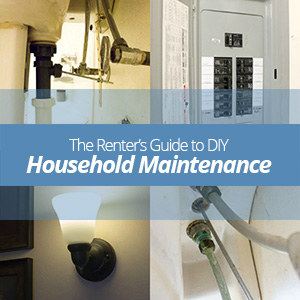When selecting an
assisted living facility or
senior housing, a number of factors can help narrow your search: price, location, activities, even the food. Arguably the most important factor, however, is whether or not the facility had violations or citations when last inspected under senior housing regulations.
While you could do a quick online search and read reviews of assisted living facilities, these third-party sites aren’t in charge of inspections. That duty is usually the responsibility of the government.
For example, the Centers for Medicare and Medicaid Services launched
Nursing Home Compare in 2008 as a web-based report card. Using a five-star rating, the agency assesses the quality of care of CMS-certified nursing homes.
While an excellent resource, Nursing Home Compare doesn’t evaluate assisted living or senior housing options not funded by Medicare. For that, you have to turn to other federal and state agencies for senior housing regulations.

Defining Assisted Living
Before comparing housing options for seniors, you should understand the difference between independent living communities and assisted living facilities.
Independent living communities – sometimes also known as retirement communities, senior apartments or 55+ communities – cater to people who require little to no assistance. These are seniors who are independent and have few medical concerns.
These homes are paid for privately and include options like meal packages and
social activities. Because these homes are private, there isn’t much government funding except, for some, under
Section 202 of the Supportive Housing for the Elderly Program. This U.S. Housing and Urban Development program finances housing for “very low-income elderly persons, including the frail elderly,” and provides rent subsidies.
Assisted living communities are specifically designed for people who can no longer live on their own but do not need the high-level care of nursing homes. Assisted living facilities help residents with daily routines like eating and taking medications. These facilities also provide social activities, provide transportation and have staff available 24 hours a day.
Assisted living facilities are mostly paid for privately, but some do accept Medicaid.
Nursing homes, in contrast, provide 24/7 care for severe medical conditions. They can be paid for privately or with Medicare or Medicaid.

Regulating Assisted Living
If a nursing home is receiving funds from Medicare or Medicaid, it must comply with federal regulations established in the
1987 Nursing Home Reform Act.
In general, assisted living facilities and senior housing are regulated by the states. Each state issues a license to a facility after an inspection, typically conducted annually or semiannually. This process is overseen by a state’s department of health, department of social services or, in some instances, a combination of these departments.
Inspection teams typically comprise nurses, social workers, sanitarians and public health officials. The teams survey staff, residents and family members; examine facility records; and make observations. These surveys are then used to identify compliance and quality improvement issues.
Most state regulations address essential services that a senior living facility must provide. These services include
assistance with activities of daily living (help with dressing, eating, etc.), meals, housekeeping and resident assessments. Some states have additional regulations for services such as money management, making medical appointments and taking residents shopping.
Keep in mind that many senior housing communities that provide only housing, housekeeping and meals are not required to be licensed by the states.
This article was originally published on After55.com: How Assisted Living and Senior Housing Are Regulated
For information on the regulations in your state, After55.com offers a list of
state agencies responsible for assisted living licenses and regulations.







